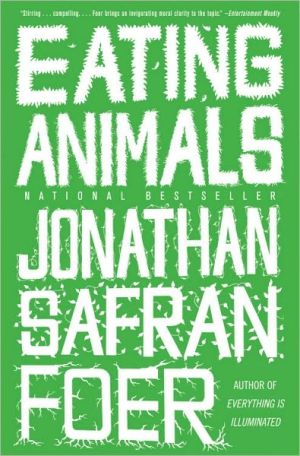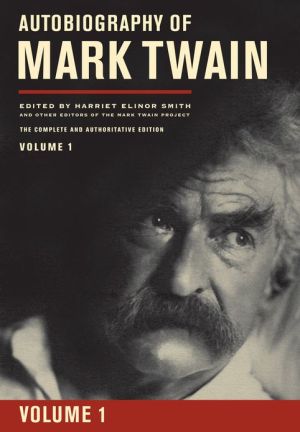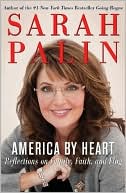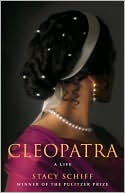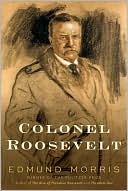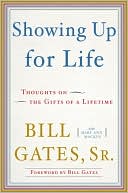Eating Animals
Jonathan Safran Foer spent much of his teenage and college years oscillating between omnivore and vegetarian. But on the brink of fatherhood-facing the prospect of having to make dietary choices on a child's behalf-his casual questioning took on an urgency His quest for answers ultimately required him to visit factory farms in the middle of the night, dissect the emotional ingredients of meals from his childhood, and probe some of his most primal instincts about right and wrong....
Search in google:
Jonathan Safran Foer spent much of his teenage and college years oscillating between omnivore and vegetarian. But on the brink of fatherhood-facing the prospect of having to make dietary choices on a child's behalf-his casual questioning took on an urgency His quest for answers ultimately required him to visit factory farms in the middle of the night, dissect the emotional ingredients of meals from his childhood, and probe some of his most primal instincts about right and wrong. Brilliantly synthesizing philosophy, literature, science, memoir and his own detective work, Eating Animals explores the many fictions we use to justify our eating habits-from folklore to pop culture to family traditions and national myth-and how such tales can lull us into a brutal forgetting. Marked by Foer's profound moral ferocity and unvarying generosity, as well as the vibrant style and creativity that made his previous books, Everything is Illuminated and Extremely Loud and Incredibly Close, widely loved, Eating Animals is a celebration and a reckoning, a story about the stories we've told-and the stories we now need to tell. Publishers Weekly Starred Review. The latest from novelist Foer is a surprising but characteristically brilliant memoir-investigation, boasting an exhaustively-argued account of one man-child's decade-long struggle with vegetarianism. On the eve of becoming a father, Foer takes all the arguments for and against vegetarianism a neurotic step beyond and, to decide how to feed his coming baby, investigates everything from the intelligence level of our most popular meat providers-cattle, pigs, and poultry-to the specious self-justifications (his own included) for eating some meat products and not others. Foer offers a lighthearted counterpoint to his investigation in doting portraits of his loving grandmother, and her meat-and-potatoes comfort food, leaving him to wrestle with the comparative weight of food's socio-cultural significance and its economic-moral-political meaning. Without pulling any punches-factory farming is given the full expose treatment-Foer combines an array of facts, astutely-written anecdotes, and his furious, inward-spinning energy to make a personal, highly entertaining take on an increasingly visible (and book-selling) moral question; call it, perhaps, An Omnivore's Dilemma. Copyright © Reed Business Information, a division of Reed Elsevier Inc. All rights reserved.
\ San Francisco ChronicleA work of moral philosophy....The fact that Foer makes me wonder whether I'm being, at best, a hypocrite every time I eat a piece of beef suggests he's completely successful in at least one ambition.\ \ \ \ \ St. Louis Post-DispatchExtraordinarily thoughtful and intelligent.\ \ \ Philadelphia Daily NewsEating Animals stands as a pop-cultural landmark, destined to be the starting point for a lot of overdue conversations.\ \ \ \ \ Publishers WeeklyStarred Review. \ The latest from novelist Foer is a surprising but characteristically brilliant memoir-investigation, boasting an exhaustively-argued account of one man-child's decade-long struggle with vegetarianism. On the eve of becoming a father, Foer takes all the arguments for and against vegetarianism a neurotic step beyond and, to decide how to feed his coming baby, investigates everything from the intelligence level of our most popular meat providers-cattle, pigs, and poultry-to the specious self-justifications (his own included) for eating some meat products and not others. Foer offers a lighthearted counterpoint to his investigation in doting portraits of his loving grandmother, and her meat-and-potatoes comfort food, leaving him to wrestle with the comparative weight of food's socio-cultural significance and its economic-moral-political meaning. Without pulling any punches-factory farming is given the full expose treatment-Foer combines an array of facts, astutely-written anecdotes, and his furious, inward-spinning energy to make a personal, highly entertaining take on an increasingly visible (and book-selling) moral question; call it, perhaps, An Omnivore's Dilemma.\ Copyright © Reed Business Information, a division of Reed Elsevier Inc. All rights reserved.\ \ \ \ \ \ Kirkus ReviewsCelebrated novelist Foer (Extremely Loud and Incredibly Close, 2005, etc.) examines the ethics and practical realities of eating things with faces. The author's first book-length work of nonfiction opens with a reminiscence of a grandmother who scraped for food to stay alive during the dark years of the Holocaust, yet refused to violate kashrut law to eat a proffered piece of pork, saying, "If nothing matters, there's nothing to save." Against that time of want and the food insecurity his grandmother expressed for the rest of her life, Foer examines this time of too-muchness, of cupboards full of luxuries and days full of meaty meals made possible by an elaborate system of factories, stockyards and slaughterhouses. "Eating animals," he writes, "is one of those topics, like abortion, where it is impossible to definitively know some of the most important details . . . and that cuts right to one's deepest discomforts, often provoking defensiveness or aggression." To his credit, the author is not shy of exploring his own discomforts while engaging in near-Talmudic analyses of the finer points of being a carnivore: If a pig is as smart as, if not smarter, than a dog and just as fond of playing with toys, then why aren't they allowed to curl up next to the fire with us? Of course, Foer allows, there are cultures where eating dogs is considered a good thing, though none that come to mind where having pigs as pets is common. Given the environmental costs of eating meat-"for every ten tuna, sharks, and other large predatory fish that were in our oceans fifty to a hundred years ago, only one is left"-and the looming sense that a time of scarcity is again in the offing, Foer's case for ethicalvegetarianism is wholly compelling. A blend of solid-and discomforting-reportage with fierce advocacy that will make committed carnivores squeal.\ \ \ \ \ Entertainment WeeklyStirring....compelling, earnest...Foer brings an invigorating moral clarity to the topic.\ \ \ \ \ Andrew WeilEating Animals carefully, deliberately, takes you through every relevant dimension of factory farming...One sees it from the inside, the outside, the moral high ground, the dithering consumer level, through Foer's family stories, from slaughterhouse workers, animal behaviorists, even from defenders of the system... Foer's aim is not to make your choice, but to inform it. He has done us all a great service, and we, and the animals, owe him our thanks.\ — The Huffington Post\ \ \ \ \ Jennifer Schuessler[Eating Animals] is a postmodern version of Peter Singer's 1975 manifesto Animal Liberation...Foer is the latest in a long line of distinguished literary vegetarians.\ — New York Times Book Review\ \ \ \ \ Geoff NicholsonA work of moral philosophy...After reading this book, it's hard to disagree [with Foer].\ — San Francisco Chronicle\ \ \ \ \ Holly Silva[Eating Animals] is extraordinarily thoughtful and intelligent, and reads more like philosophy than journalism.\ — St. Louis Post-Dispatch\ \ \ \ \ Susan Salter ReynoldsSome of our finest journalists (Michael Pollan, Eric Schlosser) and animal rights activists (Peter Singer, Temple Grandin)-not to mention Gandhi, Jesus, Pythagoras, Aristotle, Thomas Aquinas, John Locke and Immanuel Kant (and so many others)-have hurled themselves against the question of eating meat and the moral issues inherent in killing animals for food. Foer, 32, in this, his first work of nonfiction, intrepidly joins their ranks...It is the kind of wisdom that, in all its humanity and clarity, deserves a place at the table with our greatest philosophers.\ — Los Angeles Times\ \
